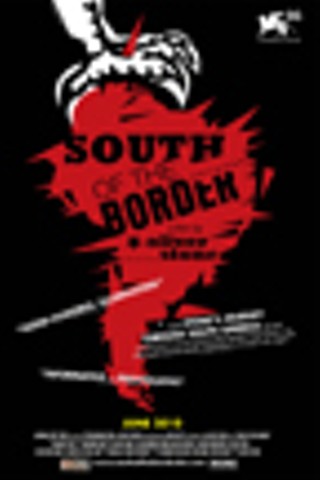Documentaries are sometimes incorrectly elevated to the status of "non-fiction films." That's the aim, certainly, but many documentaries have no interest in chronicling any subject in an objective way. To be fair, it's impossible to be objective when reporting on anything. When an interview is cut for time or a fact is omitted in pursuit of a cleaner narrative, whatever it is—a news report, an obituary or a feature-length film—has become subjective.
And then there's Oliver Stone. Certainly, nobody would confuse Stone with a filmmaker who leaves axes for others to grind. His career, to put it mildly, is steeped in re-examining American history and government policies. On the one hand, JFK, a gorgeously assembled three-hour dissemination of conspiracy theories, opened up long-sealed files because of new public demand it inspired. On the other, his looks at the lives of Richard Nixon and George W. Bush repeatedly stumble over themselves.
Stone became a documentarian earlier this decade, traveling to Havana to unlock the past and the long reign of Fidel Castro with Commandante. He returned to Latin America in 2008 to film South of the Border, discussing the changing face of the geopolitical landscape with newly elected leaders in several South American countries.
Among those leaders, of course, is Hugo Chávez, the charismatic and controversial president of Venezuela, with whom Stone spends about a quarter of this film. There is no other side presented during Stone's segment on Chávez, which would be at the very least practical and probably necessary if this were truly an attempt to be a documentary. Without it, it's worth wondering if Stone has even tried to paint a fair picture or only the one he wants to see. There is a belief that documentaries shouldn't showcase authorship, and there are still a few examples of that, but even great documentaries, especially in the past decade, have sidestepped fact-finding in favor of a predetermined story.
For all of about 10 seconds, Stone tackles the common and important refrain about human rights violations under Chávez. The director, who also narrates his film, says that American ally Colombia has a worse record. And ... scene.
What Stone leaves out—and with a 78-minute running time, there's plenty of room for a more stringent investigation of the truth—is that Human Rights Watch, Freedom House and Amnesty International have all called Venezuelan policies into question during Chávez' decade-long reign.
And when Stone misses his opportunity to either press Chávez further or get the other side of the story from someone in the oft-criticized United States government or one of the previously mentioned human rights groups, it's hard to sit through the rest of South of the Border without wondering what else is being left out and whether it's on purpose or the result of lazy filmmaking.
What is included, though, is pretty eye-opening. The election of Chávez, who has never hid himself from the democratic process, was the first domino to topple. Terrible economies and unrest throughout South America has led to the arrival of New Bolivarians, as they're called here: Evo Morales in Bolivia; Luiz "Lula" da Silva in Brazil; Néstor Kirchner in Argentina and his wife and successor as president, Cristina; Rafael Correa in Ecuador; and Fernando Lugo in Paraguay. All have risen to power this century; all are what would classically be defined as socialists, and as Cristina Kirchner tells Stone, the leaders look like the people they represent. Morales and Lula were union leaders, Lugo was a priest, and Chávez a former military man.
Fifty years ago, this rise in socialism so close to American soil would have set off alarms in Washington. It did, actually. Just ask Castro or Che Guevara, who is more a part of the imagination of Latin Americans after his CIA-ordered assassination than he ever was while alive. And perhaps this extreme left turn raised important eyebrows in the early part of Chávez' reign; Stone recounts the alleged U.S. involvement in an unsuccessful coup in Venezuela in 2002. But there appear to be success stories here and there in South America, particularly in the blossoming economy of Brazil. The idea, not expressed as such by Stone, is that by electing officials of this new breed, the South American continent will go places it never could under the thumb of United States control of the International Monetary Fund.
There is a place for that line of logic in any discussion of the subject, but a film purporting to be a documentary should do more digging to see what the other side might be. In Stone's defense, however, South of the Border begins with a moronic, brain-bending exchange from the utterly vapid Fox and Friends, in which Chávez is called a drug addict for no good reason. So maybe this is the other side.
But it comes off as a fluff piece, a film that could actually be very instructional and important if that was the design. Its maker having been granted an audience with the leaders of more than 300 million people, it's a shame South of the Border feels so incomplete and placating, especially from a filmmaker so willing to question his own government.











